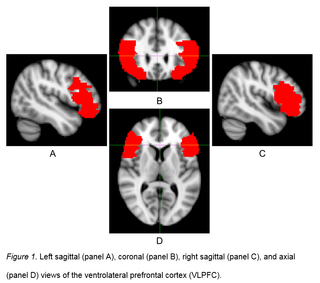
Psychopathy
Do "Successful" Psychopaths Have a Brain Advantage?
Some psychopaths may get ahead because of an abundance of neural tissue.
Posted December 6, 2019 Reviewed by Devon Frye
Psychopaths are characterized by their tendency to be mean, disinhibited, and bold. They are disproportionately the perpetrators of violent crimes and subsequently make up a large proportion of the prison population. Indeed, about 93 percent of psychopaths are in jail, prison, on parole, or on probation.
However, some psychopaths remain unincarcerated and lead successful and socially-integrated lives. This latter category is called successful psychopaths. Indeed, many people at the upper echelons of society score high in psychopathy.

But what makes a psychopath successful versus unsuccessful? There are many likely contributors, but experts have largely agreed that their ability to control their impulses is key to maintaining their status as successful psychopaths. These individuals likely spent the early years of their lives experiencing strong desires to harm others, but they also developed the impulse control necessary to either inhibit these tendencies, hide them, or shunt them in a socially-desirable direction.
In a new paper led by a doctoral student in my lab, Emily Lasko, we tested this theory using structural brain imaging. More specifically, we brought 144 men and women into the lab who were academically successful (college students) and/or socially successful (long-term romantic couples). These participants completed a questionnaire that measured their psychopathic tendencies with items such as:
- "I enjoy manipulating other people’s feelings."
- "Success is based on survival of the fittest; I am not concerned about the losers."
- "For me, what’s right is whatever I can get away with."
We then placed participants in an MRI scanner and measured the gray matter density of various regions of their brains. Gray matter represents the cell bodies of neurons, the brain cells that allow you to move, think, and feel. Gray matter density is a good indicator of how structurally healthy, intact, and developed a part of the brain is and suggests that it functions well. If successful psychopaths really have better impulse control, then the parts of the brain that perform this inhibitory function should be more developed.
This led us to target a specific region of the brain's cortex called the ventrolateral prefrontal cortex (or VLPFC for short; shown below in red).

The VLPFC does a lot of things, but one thing it excels at is allowing us to inhibit an inappropriate impulse (for example: not pressing a button when a stop sign appears or suppressing laughter at a funeral). Using MRI, we measured the gray matter density of the VLPFC and then compared it to how much each participant scored as a psychopath on their questionnaire.
We found that the more psychopathic these successful people were, the more gray matter density they had in the VLPFC. This suggests that successful psychopaths do indeed have a more developed ability to inhibit their antisocial impulses.
These results also clash with a prevailing approach to psychopathy: that it is characterized by deficits in the brain. Psychopaths, both unsuccessful and successful, are likely to have some deficits—for example, lower functioning in empathic brain circuits—but we have found that successful psychopaths also have some advantages. These neural surpluses may allow them to not only remain in society but to rise to some of the top positions therein. Indeed, having the ability to control your impulses is likely to help them manage a large array of problems.
For those who seek to curb the harm done by psychopaths, promoting their ability to control their impulses is likely to reduce their antisocial behavior. Or, it may also allow them to hide it and regulate it in a way that is less obvious. Instead of robbing someone on the street, they may learn to secretly siphon funds from bank accounts. So we should be cautious when we teach self-control skills to psychopaths.

Our findings are merely correlational and therefore we cannot infer that being more psychopathic causes people to develop the inhibitory regions of their brain. Further, we didn't recruit "true" psychopaths, such as individuals diagnosed with antisocial personality disorder and who also score high on psychopathy.
Despite these limitations, we believe our findings have virtue. Focusing on both the deficits and the advantages that psychopaths have is a promising approach to understanding and treating this costly form of human personality.
References
Lasko, E. N., Chester, D. S., Martelli, A. M., West, S. J., & DeWall, C. N. (2019). An investigation of the relationship between psychopathy and greater gray matter density in lateral prefrontal cortex. Personality Neuroscience, 2.

